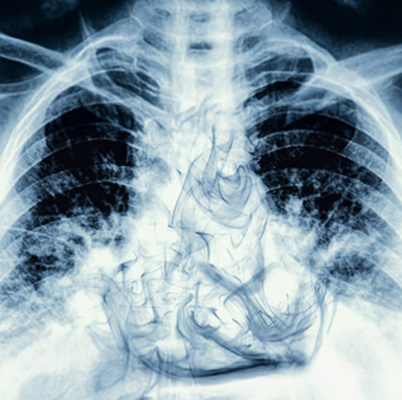A new targeted lung cancer screening programme throughout the UK is to be introduced. The recommendation came from the UK National Screening Committee (UK NSC), with the aim to target those that are at high risk of developing lung cancer. This screening programme could significantly improve early diagnosis of the disease. Here, we discuss the benefits of the lung cancer screening programme, the risks and issues that could arise, as well as the impact it will have on medical practices and how they need to be supported.
Adult screening programmes
According to NHS England, adult screening programmes in the UK, which include screenings for bowel cancer, breast cancer, cervical cancer, abdominal aortic aneurysm and diabetic eye, have saved around 10,000 lives each year due to prevention and early diagnosis.
Lung cancer screening
With Cancer Research revealing that nearly 35,000 lives are lost each year to lung cancer, the UK NSC, an independent body of experts within the healthcare industry, hope to improve lung cancer survival rates in the country.
As smoking is the leading cause for more than 70% of lung cancer cases in the UK, people between the ages of 55 and 74 who either currently smoke, or have smoked in their lifetime will be invited to have an initial assessment.
The aim of the initial assessment is to identify if someone is at high risk of developing the disease by asking some questions. If they are found to be in the high-risk bracket, then a low dose CT scan of the lungs will be offered. The CT scan, which uses x-rays and a computer to create a 3D image of the lung, can help determine whether there are any changes in the lungs which could be cancer. If any abnormalities are found, then further tests and screenings may be offered. If lung cancer is suspected, then the patient will be referred straight away in order to receive a formal diagnosis as quickly as possible.
This is a challenge for Healthcare professionals due to the significant increase in workload. Pharma could help Healthcare professionals, by ensuring that there is detailed and useful information that can be easily shared with patients, explaining the process of these assessments and possible outcomes. Healthcare professionals will also need to be trained by Pharma on how this process is to work. This will also enable them to confidently answer any questions patients may have.
The benefits
Lung cancer accounts for 21% of all cancer deaths, making it the most common cause of cancer death in the UK. The new lung cancer screening programme is expected to scan one million people every year and detect as many as 9,000 people with the disease. With just 16% of lung cancer patients surviving five or more years in the UK, earlier detection could dramatically improve these statistics.
Furthermore, the lung cancer screening could help tackle unacceptable cancer inequalities in the country. With deprivation causing an additional 30,000 cancer cases every year in the UK, and statistics showing that lung cancer is the biggest contributor, the lung cancer screening could help close the gap in the number of people being diagnosed. It is worth noting that health professionals should monitor the lung cancer screening take up in order to measure how inequalities in the country are affected.
Risks involved
Even though thousands of lives are saved every year because of cancer screening tests in the UK, it is worth pointing out that the screenings don’t come without risks, which is why it is vital to only target people where the benefits outweigh the potential harms.
During a lung cancer screening, patients are exposed to high levels of radiation which in itself can cause long-term health concerns such as cardiovascular disease and cancer. Those that receive a negative result, will have exposed their body to high levels of radiation unnecessarily.
The reliability of the test should also be evaluated to ensure false positives, false negatives and overdiagnosis are kept to a minimum. False positives and overdiagnosis can cause a lot of concern and anxiety, so it is essential the screenings are as accurate as possible. Pharma offering tailored screening training to healthcare professionals will ensure that screenings are as accurate as possible. By specifically focusing on and offering screenings to those that smoke or have previously smoked, healthcare professionals can ensure that the benefits of the screening outweigh the associated risks.
The impact on medical practices
Primary care practitioners, pharmacists and secondary care avenues will play a vital role in the rollout of the new lung cancer screening test, in terms of identifying patients that meet the criteria, as well as offering advice and support. As a result, GPs and other healthcare practitioners will require further training and education about the lung cancer screening and will need to be equipped to deal with patient concerns and anxiety. With this increased workload, in what is already an extremely challenging time within the NHS, it is paramount that healthcare professionals receive detailed guidelines from Pharma, that will support them in sharing information with the patients. Healthcare professionals need the very best support to ensure a smooth rollout of the lung cancer screening programme.
Prevention still remains key
Although the lung cancer screening programme is predicted to save thousands of lives, one thing is certain – prevention is still the most important factor. In the UK, 1 in 13 males and 1 in 15 females will be diagnosed with cancer in their lifetime. Reassuringly, 79% of lung cancer cases in the UK are preventable. With smoking causing 7 out of 10 lung cancer cases in the UK, it is vital that all screening staff are trained to offer people the right level of support on how to stop smoking. This is where Pharma will need to ensure they are taking the role as health educators, so screening staff feel knowledgeable and confident in the delivery of these screenings.
Conclusion
The new lung cancer screening programme will be a good diagnostic tool, however, it is always important to remember the risks associated with the test. The rollout of the programme will have a big impact on medical practices, however, with many lives to be saved healthcare professionals have a duty of care to ensure everyone who fits the criteria is offered a screening and any concerns or questions about the screening are dealt with professionally and empathetically. Additionally, this means Pharma has a duty to provide support to healthcare professionals, supplying all of the resources they need to ensure the screening programme is a success.



